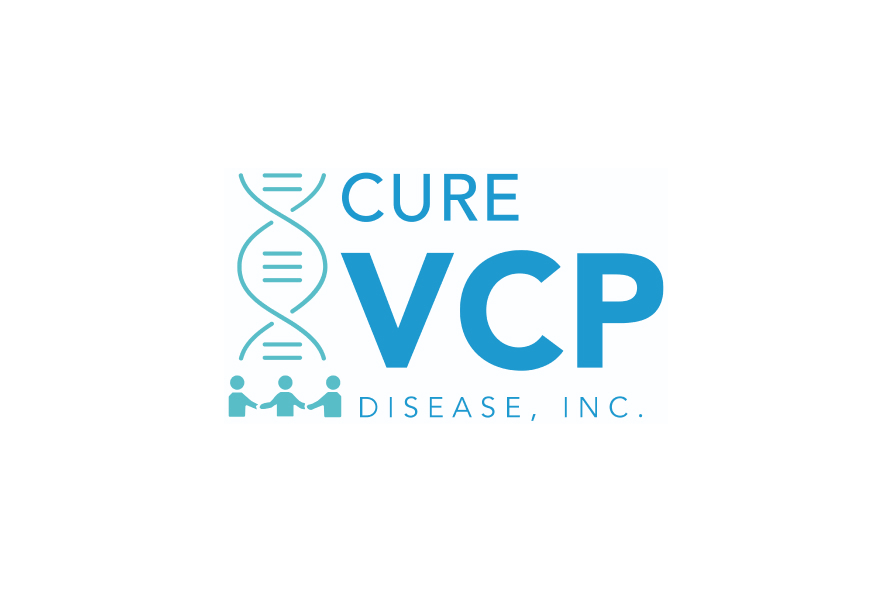Cure VCP Disease, Inc.
Cycle 2
VCP is a protein disorder that affects multiple body systems. It is also called multisystem proteinopathy (MSP1). This disease is a rare, adult-onset, neuromuscular disease caused by any one of several possible variants in a gene called Valosin Containing Protein (VCP or p97). Symptoms typically include one or more of the following: myopathy, early–onset Paget’s disease of bone, and premature frontotemporal dementia. Other possible co-morbidities are ALS, CMT, and Parkinson's disease.
Last updated 04/30/2025
Clinical
Disease Class
Bone diseases
Genetic diseases
Neurological diseases
Neuromuscular diseases
Body Systems
Cardiovascular / Circulatory
Muscular / Skeletal
Nervous / Sensory
Renal / Urinary / Excretory
Respiratory
Organs
Bones
Brain
Heart
Lungs
Muscles
Nerves
Spinal cord
Known Genetic Link
Yes, one or more genes directly cause the condition
causative_genes
VCP
contributory_genes
None specified / unknown
Type of Inheritance
Autosomal dominant
De novo
Newborn Screening
No
Disease Mechanism(s)
Abnormal protein degradation
Altered DNA repair mechanism
Lysosomal defects
Pathogenic mutation
Protein misfolding
Protein mislocalization
Ribosome assembly defect
Age of Onset
Adulthood (age 18-64)
Average Age at Diagnosis
Adulthood (age 18-64)
Life Expectancy
Adulthood (age 18-64)
Affected Sex(es)
Female
Male
National Prevalence
101-1000
Global Prevalence
1001-10000
National Incidence
Less than 10
Global Incidence
Less than 10
Populations and/or ancestry with higher prevalence
Originally thought to be European in origin, but we are discovering cases in Asia, South America, etc.
Symptoms / Phenotypes
behavioral changes
bone deformations
bone pain
cramps
dementia
dysphagia
muscle weakness
myopathy
peripheral neuropathy
seizures / epilepsy
speech problems / apraxia
Biomarkers
None
Existing Therapies
None
Organizational & Research
Cell Lines
Fibroblasts
iPSCs
Myoblasts
Other
Cell Lines, Institution
Genethon
iXCells Biotechnologies
Cell Lines, Involvement
Designed
Funded
Own
Cell Lines, share
All our cell lines are freely available
Disease Model
Organoids
Disease Model, Involvement
Consulted
Own
Disease Model, share
Unsure
Clinical Trial Role
Not involved
Biobank, Institution
COMBINEDBrain
Biobank, Involvement
Consulted
Own
Center of Excellence, Institution
None
Registry
Yes, we have a registry that we created
Data Collected, Registry
Clinical data
Electronic health records/electronic medical records
Genetic data
Longitudinal natural history data
Medication usage
Patient contact info
Patient-reported data
Data Entered by, Registry
Patients
Platform, Registry
Matrix
Natural History Study
Yes, we have a natural history study that we created
Data Collected, Natural History Study
Clinical endpoints (outcomes)
Genetic data
Medication usage
Patient-reported outcomes
Prospective data
Retrospective data
Platform, Natural History Study
Matrix
FDA Patient Listening Session
Yes
FDA Patient-Focused Drug Development (PFDD) Program
No
ICD Codes
Yes, we have an ICD-11 code specific to our exact disease
Diagnostic Guidelines
Yes, we have guidance available on our website
Yes, we have published formal guidelines in a peer-reviewed journal
Science Advisory Board Policies
Yes, willing to share SAB policies
Research Network Policies
Does not have a CRN
Research Roadmap
Yes we have a Research Roadmap, and will share policies
International Chapters
None
International Partners
None
